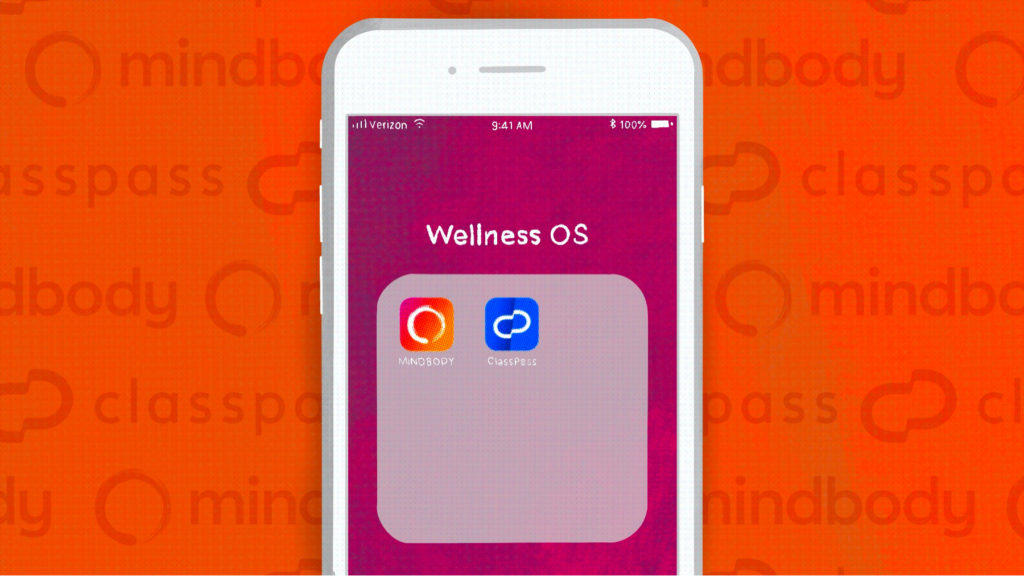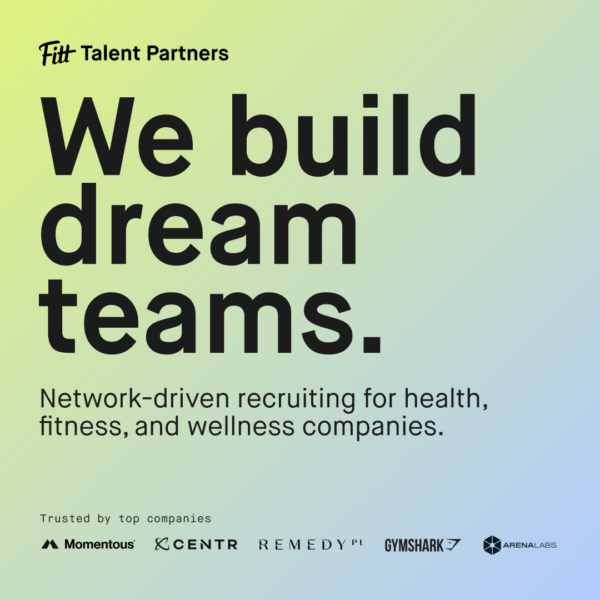Last week, Mindbody announced it had acquired ClassPass.
Big news in the wellness world, the deal brings together two billion-dollar brands, impacting businesses and consumers alike.
Beyond the headline, today we’ll explore the implications going forward.
Done Deal
In many ways, this outcome was inevitable.
Who’s who. A booking platform for the wellness industry, Mindbody is primarily a B2B software. Its consumer-facing counterpart ClassPass is a subscription-based fitness marketplace.
Details. Terms of the all-stock transaction were not disclosed, but Mindbody is said to hold between 60–70% stake in the combined business. As part of the deal, Mindbody added $500M in new funding led by global investment firm Sixth Street.
Supply + Demand. No stranger to one another, Mindbody’s API powers some ClassPass studio inventory.
Beyond that, Mindbody grew into a $1.9B business by focusing on the supply side of the equation — providing business management software to more than 50K customers around the world.
For its part, ClassPass was demand-first, selling consumers on access to multiple studios while driving traffic for boutique operators. Over the years, business model shifts and criticism from studio owners raised red flags. Despite the speed bumps, ClassPass secured a $285M investment and $1B valuation in January 2020.
Before and After
Before. Pre-COVID, both companies were pursuing new growth opportunities.
Pushing further into the beauty sector, Mindbody acquired Booker, a spa and salon scheduling platform, for $150M in 2018. The company also began encroaching on ClassPass, developing a consumer-facing fitness marketplace of its own. Expanding internationally, in early 2020, Mindbody opened an India office.
Meanwhile, ClassPass also added beauty and wellness services. And by partnering with more than 2K employers, corporate wellness became a focus. More interesting, though, the company intended to expand beyond health and fitness.
From art lessons and cooking classes to concerts, ClassPass planned more experiences under the LifePass banner. CEO Fritz Lanman confirmed as much in 2019, adding:
“The five-year vision is not just to be the Netflix of health and wellness but to add other types of experiences and help you to manage your free time. Whether that’s going to comedy shows or sporting events or things with your friends or even volunteering.”
Lanman reiterated this intention on the Fitt Insider Podcast last spring, noting it remained a distant goal. More certain, he stressed, the fitness industry would rebound and ClassPass would go public:
“Our plan is to IPO… our goal is to be an independent generational technology company. We feel like we’ve got a long roadmap and a lot left to prove and learn and iterate through… I see us continuing to do that as an independent company.”
After. The pandemic’s impact on gyms and studios led to revenue declines and layoffs at both companies.
A stopgap measure, Mindbody and ClassPass also introduced digital offerings, helping connect businesses and health-seekers. But lingering shutdowns likely prompted M&A talks earlier this year.
The result? With the fitness industry still reeling, the companies decided combining forcing was more favorable than going it alone.
Back to Business
When gyms and studios were forced to shutter, digital workouts took off. But now, in-person exercise is making a comeback.
As the brick-and-mortar industry gets back on its feet, the new tag team of Mindbody and ClassPass will look to create a one-stop shop for fitness and wellness.
Cross-promotion. Low-hanging fruit, Mindbody and ClassPass will promote their counterpart to existing clients, driving revenue for the software providers and demand for studio/salon partners. ClassPass’s corporate partners also represent fertile ground. Realizing efficiencies and remedying a long-held criticism of ClassPass, the companies could discount fees for partners who use both software providers.
Wellness. According to McKinsey, 79% of consumers are prioritizing wellness. As the pursuit of wellness expands to include recovery, self-care, beauty, and more, expect Mindbody and ClassPass to add new verticals while doubling down on salon/spas. Similarly, as platforms like Urban, WellSet, and Kenshō Health have shown, there’s also room to expand holistic wellness offerings.
International. Mindbody already serves customers in 150 countries, with offices in the US, UK, Australia, and India. Likewise, ClassPass is available in 2,500 cities worldwide. In an effort to increase market share, the companies could consolidate software providers, like Dublin-based Glofox or Peru’s Fitco, in other countries.
Omnichannel. Recently, Mindbody introduced Flex, a digital fitness membership, and ClassPass resurrected its on-demand service. By helping businesses create, host, and monetize digital content while giving consumers more options across in-person and digital, building out an omnichannel platform will pay dividends.
Fitness creators. To date, Mindbody and ClassPass have primarily focused on brick-and-mortar businesses. But fitness creators represent a growing and underserved segment. Developing business management software for personal trainers and instructors would be a logical step. The same goes for holistic wellness, health coaching, and other solo practitioners.
Looking Ahead
Betting that fitness will bounce back, the upside and obstacles ahead paired with the obvious synergies between Mindbody and ClassPass sealed this acquisition.
No small task, integrating a B2B and B2C company will be a challenge in itself. Another hurdle, studio owners will need reassuring that both companies have their best interest in mind.
wellnessOS. Will it work? Time will tell. But, if it does, Mindbody and ClassPass could become the operating system for the trillion-dollar wellness industry.
⛰ Strava for Rock Climbing
Outdoor activities surged during the pandemic, and interest in rock climbing is peaking.
On the Fitt Insider Podcast: Kimberly Ang, co-founder and CEO of KAYA—an app for rock climbers—joined us to chat about bringing the climbing community, and quality content, online.
We also cover: the company’s new premium subscription, as well as its efforts to increase access to climbing, democratize mentorship, and help grow participation in the sport.
Listen to today’s episode here.
🤝 More M&A
Mindbody and ClassPass may have been the biggest deal of the last week, but it wasn’t the only one.
PEAR Sports x Aaptiv. Digital coaching platform PEAR Sports acquired on-demand fitness app Aaptiv. Starting with audio-based workouts before expanding into video, Aaptiv prioritized personalization, landing more than $50M in funding from backers like Amazon’s Alexa Fund, Disney, and Warner Music.
Terms of the deal were not disclosed. Of note, equipment manufacturer Life Fitness added to its investment in PEAR Sports and plans to distribute Aaptiv through its platform.
Xponential x Body Fit. A publicly traded holding company of boutique studio brands, Xponential Fitness completed its 10th acquisition to date, paying $44M for Body Fit Training. The Australian-based strength training concept joins a portfolio that includes Club Pilates, Pure Barre, CycleBar, Row House, StretchLab, AKT, YogaSix, STRIDE, and Rumble.
After a slow start in its public debut, Xponential reported revenue growth in its latest earnings call as studios reopened and attendance began to rebound.
Walgreens x healthcare. Beyond fitness, highlighting a trend we recently detailed, retailers are pushing into healthcare.
The latest development: Walgreens Boots Alliance acquired majority stakes in primary care clinic VillageMD and post-acute care platform CareCentrix, paying $5.2B and $330M, respectively. That’s in addition to spending nearly $1B last month to up its ownership of specialty pharmacy platform Shields Health Solutions.
Hardly alone, CVS, Walmart, and Dollar General are among a growing list of retailers launching initiatives aimed at courting health-minded consumers.
🧢 All in on Activewear
Activewear upstart Vuori is now worth $4B following a $400M investment from SoftBank.
The deal comes in the wake of several big activewear bets:
- Wolverine Worldwide bought women’s activewear brand Sweaty Betty for $410M in August.
- Levi Strauss and Co. added Beyond Yoga to its portfolio for $400M in late September.
- Gymshark is exploring a public offering after a $300M investment valued the company north of $1.3B last year.
Off the charts. “It is clear that activewear is the key apparel story in 2021,” says senior sports industry adviser Matt Powell. Boosted by the pandemic, analysts found that the category accounted for 40% of all online sales last year.
This market, however, is as saturated as it is popular. What sets Vuori apart?
The Vuori Factor. Founded six years ago, the coastal Californian brand has largely flown under the radar. But when the pandemic hamstrung retail, Vuori outmaneuvered other brands, nearly tripling revenue, and has since amassed a loyal following.
Outside of pandemic resilience, Vuori differentiates in core capacities:
- Performance-wise, Vuori rivals industry leaders, but with a nondescript twist — sleek, functional quality and cozy comfort sans flashy logos.
- Eco-forward, the brand is uniquely positioned to tap into the sustainable activewear craze.
- The company also infuses technology into everything it does, from informing digital consumer engagement to guiding fabric construction.
Plotting its growth, Vuori is hiring top talent and plans to expand from 10 to 100 physical locations by 2026. Investing in influencers, the startup recently partnered with LSU gymnast Olivia Dunne, the most-followed collegiate athlete across all social platforms.
Punchline: As indie activewear brands tap into fast-growing sectors like women-focused and sustainability, they’re steadily gaining on industry incumbents. Ahead, fusing its DTC prowess, operational agility, and environmental leadership, Vuori aims to grab a hefty slice of the expanding activewear pie.
📰 News & Notes
- LeBron James invests in smart gym maker Tonal.
- lululemon’s new design patent hints at footwear line.
- Oura hires ex-Peloton global product marketer as CMO.
- Noom debuts Noom Mood to manage stress and anxiety.
- VMG Partners taps Goldman alumna Aarti Kapoor to lead SPAC.
- Dexcom and Garmin partner to display blood glucose on devices.
- Fitt Jobs: 1,000+ openings from top health and fitness companies.
- Startup Q&A: Plaid for health and fitness with TERRA CEO Kyriakos Eleftheriou
💰 Money Moves
- Wellness booking platform Mindbody acquired fitness marketplace ClassPass in an all-stock deal after raising $500M in strategic funding from investment firm Sixth Street.
- Vuori, a California-based activewear brand, secured $400M in funding from SoftBank, valuing the company at $4B.
- Digital healthcare company Lark Health, creators of an AI-assisted platform for managing chronic conditions, landed $100M in a Series D round led by Deerfield Management Company.
- Dance Church, an inclusive dance-based fitness platform, raised $4.7M in a funding round led by MaC Ventures.
- UK-based vegan meal kit service allplants secured £38M ($52.5M) in Series B financing.
More from Fitt Insider: What’s Next for Meal Kits? - Alloy, a telehealth platform focusing on women over 40, added $3.3M in seed funding ahead of launch.
- Fitness equipment startup Proteus Motion, makers of an electromagnetic strength training apparatus, raised $3M in a seed round that included golfer Bryson DeChambeau.
- Sprinter Health, a mobile healthcare service providing in-home lab draws and vitals checks, secured $33M in Series A funding led by a16z, with participation from GV, Accel, and others.
- Grain-free frozen meal company Real Good Foods Company filed for IPO, seeking to raise $86.25M.
- Vincere Health, a smoking cessation platform created by Harvard Public Health, landed $3M in an oversubscribed seed round.
- UK-based wholesale healthy product market WellEasy closed an undisclosed, oversubscribed pre-seed round.
Today’s newsletter was brought to you by Anthony and Joe Vennare, Melody Song, and Ryan Deer.
 Illustration: Courtney Powell
Illustration: Courtney Powell
